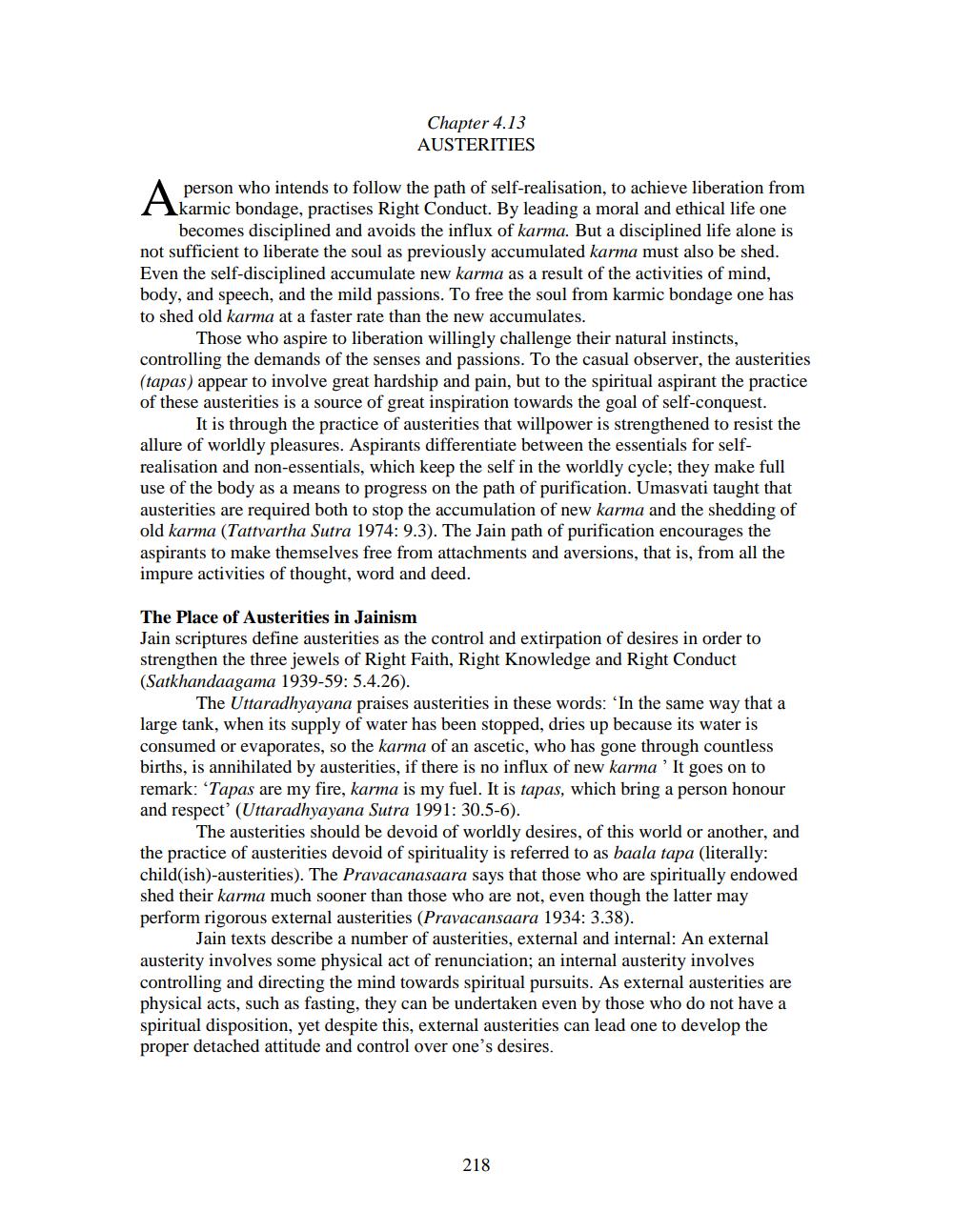________________
Chapter 4.13 AUSTERITIES
karmic bondage, practises Right Conduct. By leading a moral and ethical life one
becomes disciplined and avoids the influx of karma. But a disciplined life alone is not sufficient to liberate the soul as previously accumulated karma must also be shed. Even the self-disciplined accumulate new karma as a result of the activities of mind, body, and speech, and the mild passions. To free the soul from karmic bondage one has to shed old karma at a faster rate than the new accumulates.
Those who aspire to liberation willingly challenge their natural instincts, controlling the demands of the senses and passions. To the casual observer, the austerities (tapas) appear to involve great hardship and pain, but to the spiritual aspirant the practice of these austerities is a source of great inspiration towards the goal of self-conquest.
It is through the practice of austerities that willpower is strengthened to resist the allure of worldly pleasures. Aspirants differentiate between the essentials for selfrealisation and non-essentials, which keep the self in the worldly cycle; they make full use of the body as a means to progress on the path of purification. Umasvati taught that austerities are required both to stop the accumulation of new karma and the shedding of old karma (Tattvartha Sutra 1974: 9.3). The Jain path of purification encourages the aspirants to make themselves free from attachments and aversions, that is, from all the impure activities of thought, word and deed.
The Place of Austerities in Jainism
Jain scriptures define austerities as the control and extirpation of desires in order to strengthen the three jewels of Right Faith, Right Knowledge and Right Conduct (Satkhandaagama 1939-59: 5.4.26).
The Uttaradhyayana praises austerities in these words: 'In the same way that a large tank, when its supply of water has been stopped, dries up because its water is consumed or evaporates, so the karma of an ascetic, who has gone through countless births, is annihilated by austerities, if there is no influx of new karma' It goes on to remark: 'Tapas are my fire, karma is my fuel. It is tapas, which bring a person honour and respect' (Uttaradhyayana Sutra 1991: 30.5-6).
The austerities should be devoid of worldly desires, of this world or another, and the practice of austerities devoid of spirituality is referred to as baala tapa (literally: child(ish)-austerities). The Pravacanasaara says that those who are spiritually endowed shed their karma much sooner than those who are not, even though the latter may perform rigorous external austerities (Pravacansaara 1934: 3.38).
Jain texts describe a number of austerities, external and internal: An external austerity involves some physical act of renunciation; an internal austerity involves controlling and directing the mind towards spiritual pursuits. As external austerities are physical acts, such as fasting, they can be undertaken even by those who do not have a spiritual disposition, yet despite this, external austerities can lead one to develop the proper detached attitude and control over one's desires.
218




